I remember when my girl was a newborn, I was overcome with superstition when putting her to bed. I would circle the house, turning this on and that off, trying to replicate anything that was ever present when she once fell asleep. It was a soundtrack of fraught cacophony, well suited to the desperation it drowned out. I, as had many parents before and after me, developed superstitions that are meaningless to the outside world but give you some illusion of control.
Two friends, both beloved, admired, missed and overseas, emailed and asked to look at some chapters. My horror at such benign support was instant, curling me into a ball like a small slater at the bottom of the garden, horrified at being discovered.
But most of all you hate the current book because you can see ahead to the five other books you want to write. It becomes a child doted on, but not quite loved.
A eulogy for the death of….the death of the written word
20 SepThis piece was written and performed for the Melbourne Writer’s Festival event, the Future of the Written Word.
Today we’re here to mark the occasion of the death of “Death of the Written Word”, which I hope we can all agree died after a long battle with relevancy-itis.
“Death of the Written Word” leaves behind many dependents, including Facebook Ops Manager Nicola Mendelsohn who said Facebook video statistics suggested the written word would soon become all but obsolete.
Included in the mourners are Mic, the millennial-focused news start up which laid off 25 writing staff as it “made the pivot to video” to become, and I quote, “the leader in visual journalism”. If you’re not aware of the term visual journalism, you may know it by its former name, which was “tv fucking news”.
Also among the mourning family are several sobbing futurists who can console themselves with the realisation that no one ever really took them seriously in the first place.
You’ll note Advertising is not here. Many predicted that Advertising would kill the written word by giving its life sustaining force (which is cash) to video instead. Advertising has informed me that it doesn’t favour video to the written word, but does what it always does – chasing people ready to lose all their money, whether it be to buy false magnetic eyelashes as seen on a Facebook beauty video or in the subscription deals for the New Yorker we all order in good faith, only to leave their long form essays and indecipherably dull cartoons wrapped in plastic and languishing down the side of the couch.
Let us celebrate the Methuslian staying power of the “death of the written word”, which rose and fell with the ebb and flow of civilisations. We knew “death of the written word” never stood a chance back in Sumerian times, when the first piece of recording writing was found – the 1750BC complaint where Nanni bitched to Merchant Ea-Nasir about getting his money back for a shit delivery of copper.
Of course the written word will survive when its earliest example is the Sumerian equivalent of a bad ebay review. It was at that moment we knew time was ticking for Death of the Written Word because as long as people need to bitch about others, they will need actual words.
Yet again it came back swinging, not unlike the German barbarians who razed Rome. This was a fine time for the “death of the written word”, hale and hearty from an illiterate populace who could not write. It was said then that all the scrolls and codexes were useless due to religious, military and political officials dying in a hail of barbarian steel.
Finally, it was the death of the written word’s time to shine.
Until it somewhat ironically came to light no one remembered to kill off the Irish monks carefully transcribing and retranscribing anything scribbled in Latin in a bid to distract themselves from the fact Ireland has never seen sunlight.
That and the fact that the written word was flourishing across Asia, parts of Africa not controlled by the Roman Empire, South America and many others but LOL whiteness.
Throughout it all, the written word and the death of the written word have been locked in deadly battle. From the first rude drawings painted on a cave lit by fire, to the Gilgamesh and King James’ Bible, to the invention of radio, the invention of tv, video killing radio, radio making a comeback due to podcasts, video dying to reality tv, to the internet killing everything, to phones dying from text messaging which was then slaughtered by instant messaging,0 to the internet reigniting video, to the internet dying due to emojis and subcutaneous wearable technology due to whatever it was Ben predicted. In fact, at this point it’s worthwhile noticing that the one thing we can’t blame millennials for killing are libraries, which they have brought back to life as they hoard paper books instead of ebooks, previously thought of as their assassin.
And here we are today – mourning the death of the death of the written word because somehow along the way we worked out that the written word will never die because the written word will always be the most incorruptible and dependable way for us to make connections with information and other people, adaptable like a cockroach to withstand each technological innovation and dropped vowel obscenity to where it is right now: which is still not dead.
Indeed, death is the worst but don’t be sad because the death of the death of the written word is a chance for us to come together and find new things whose death we can endlessly predict, including but not limited to religion, the author, god, marriage, morals and maybe even raw vegans. Naturally, we will completely ignore actual deaths that happen around us including, but not limited to, the sixth massive extinction event currently facing the planet.
This is a trying time for you so I want to borrow a phrase from your culture “sadface sadface cryface heart angry woman sadface sadface and whatever the fucking emoji is for the sky is falling”.
Thank you and good night.
Old ideas leading to new people, new chapters and deeper ideas
10 JulThis is a post from my Patreon, where I’m sharing semi-regular updates on the book writing process. You can find out more here: https://www.patreon.com/AmyGray
I was so confident planning this book. No one else has written it, I declared, as I dismissed the surfeit of people writing parenting books in their first year of actual parenting without doing any reading beforehand.
Thankfully, I realised while planning my grant application that I needed to do more research. I knew there would be theses at universities I should pore over, academics to interview doing amazing work. I even approached one academic with a plan to have them review my work to try and catch any errors.
As mentioned in a previous post for patreon-mates, my linear self has been struggling with the need to write and research concurrently. It will mean some big editing later on, but is still manageable. So I write in the morning and read in the afternoon.
One morning, I wrote about the use of mother and father as noun and verbs. Satisfied I had found a great way to open the book, I raced off to the State Library to research a particular title before grabbing one book totally on impulse.
Have you ever read a book so exciting and close to your own project that your heart races from exhilaration and disappointment? I cringed! Cringed that I thought my ideas were so novel, cringed that my entire angle was not only not new, it was 20 bloody years old and cringed that my line about mother and father as verbs were in the book.
I texted a friend about my disappointment in myself that I hadn’t read this amazing book, that I couldn’t borrow this amazing book and that I hadn’t fucking written this amazing book. What the hell was the point in my writing this book if it was no longer original?
Later, I took on a small job teaching non-fiction to kids in a workshop. So many of them were too shy to share their ideas. They hadn’t clammed up, they were just too timid to read their ideas out to the group or thought their ideas were stupid or too similar.
These weren’t problems at all, I said, sneaking a look at their lists and pointing out their ideas were fantastic. There were ideas about stupid emails, the exotisisation of K-Pop, class warfare, scammers, food waste and why we hate popular people (which was my favourite article idea, even though it’s been covered repeatedly by journalists).
Not every writer had unique ideas – some doubled and their panicked faces would tighten and slack when we debated the different ways to cover them. Writers aren’t popular for their ability to write – not really, I said. Writers are popular for their ability to think. They observe the actions we don’t question and find the answers in research and thought that they then share. That’s what *can* set them apart.
I had a happy classroom again.
Drawing myself back into research as second hand books tracked down around the world began to trickle in, I felt that itch of discomfort again. There were so many books covering motherhood, some with nudges towards similar ideas I’d worked on over the years. Then there was THAT book.
I realised why I was cringing and angry at myself about that book: here was a book from almost 20 years ago that I considered so perfect but was unread. Why the fuck was that?
Because you can find almost anyone on social media, I quickly tracked down the author and contacted her, thrilling over her book. We swapped direct messages, and I told her of my astonishment her book wasn’t widley known or treated as an iconic feminist text. I shared in a later DM that I was angry with myself because I had shown the same ignorance of feminist critiques of motherhood that I was going to rail against in my book.
She was beyond gracious. She gave her blessing for the book, agreeing to an interview and shared research tips and author names.
The book? It’s still going ahead. It’s still going to touch the same spots but now, when I read her book, I don’t cringe. Instead I spot the areas to go deeper, areas to explore and find a fresh way to share my views, now suddenly verified by an amazing writer over in Europe.
You better believe the entire bloody book will be dedicated to her.
Why bikes are my mortal enemy [Pushy Women speech]
28 MarLook, I’m going to level you here. All of you are paragons of coordination and health. Look at you – you probably eat salads by choice, or drink –wait let me get this word right – water every day.
I am without athletic inclination. My breakfast is a litre of coffee and packet of cigarettes and I have a tantrum whenever my 12 year old daughter makes me salad for dinner. Your bodies have muscles, tendons, ligaments, bones…you know, all that shit. My body on the other hand is a network of awkwardness and confusion.
As a child, I preferred thumb sucking and continual naps to any of the backyard scraps normal kids got up to. My entire toddlerhood was spent sucking my thumb while rubbing a satin blanket. In fact, the only way to get me actually in the backyard was to wash the blanket…so I could continue holding onto the blanket as it dried.
This rejection of physical activity in favour of cheap fabric was never more clear than in 1980 when I was a set to make my athletic debut at the age of 4 at the Syndal North Primary School’s athletic carnival. Thanks to the wolves that raised me (I went through the 70s), I was wearing a lavender satin jogging outfit that screamed Donna Summer does Decathalon and was primed to my very best.
Did I run? Did I beat the others? Or did I give up on shuffling through the race halfway to rub my satin-clad arse and suck my thumb? Screw the competition: my arse was great. Still is.
This unholy mix of complete lack of physical interest and ability to do the most embarrassing thing possible truly found its home in bike riding.
I remember being taught how to ride by my father. My memories basically centred around his large 6’4’ frame propelling me down laneways and just wishing for the best (this is where pure optimism tries to meet the laws of physics and results in a screaming four year old on the ground).
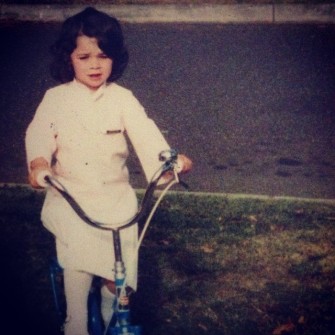 Months later, emboldened by that nurturing parental experience, I decided to be cool and visit my best friend Mari with my sisters bike. Now, I couldn’t ride it, true, but that didn’t stop me. I just walked it over and thought the ability to just lay it against their verandah would give me some cool points. This was a great plan until 2 hours later when the world’s most polite Japanese family insisted on watching me ride out of their court….only to see me fall off the bike every 10 centimetres. Despite the fact the family were literally screeching with hyperventilating laughter, I persisted in pretending I could ride a bike past several houses.
Months later, emboldened by that nurturing parental experience, I decided to be cool and visit my best friend Mari with my sisters bike. Now, I couldn’t ride it, true, but that didn’t stop me. I just walked it over and thought the ability to just lay it against their verandah would give me some cool points. This was a great plan until 2 hours later when the world’s most polite Japanese family insisted on watching me ride out of their court….only to see me fall off the bike every 10 centimetres. Despite the fact the family were literally screeching with hyperventilating laughter, I persisted in pretending I could ride a bike past several houses.
Somehow, I eventually learnt how to ride, which I can only imagine came about by some sort of faustian pact, which seems excessive for a chronically uncoordinated 5 year old.
But like all hellish contracts, what you ask for is not always what is delivered. I mean, sure, I could ride a bike….in a sense…but it never quite worked out well.
Like that time in Byron Bay I put my then 4 year old on a borrowed bike so we could ride in search of fish and chips. As a height challenged person whose hips often don’t meet adult bicycle seats, I decided that I would wear really, really high heeled boots because I’m a thinker.
Such logic failed the first test of getting my feet over the bike because not only am I physically uncoordinated and ridiculous, I’m also entirely without grace. Please imagine an awkward woman trying to get her short but high heeled legs to mount a bike with an increasingly fried-carb-crazed 4 year old already strapped onto the bike seat. Now imagine carb-fry-seeking woman in colossal heels attempting to push a borrowed bike uphill with a kid on the back while men drive by in their stationwagons to catcall. I do actually really hope this is one of my kid’s first memories because it says a lot about our lives: her calmly watching me, screaming down a hill, not fully in control but yelling at men.
We did end up having a slightly better riding experience during my Tokyo days. While hanging out with another friend, we had done what all mothers end up doing, getting shitfaced drunk to confirm every stereotype one might hold of single mothers. However, we needed more booze. What followed was nice people smiling and waving at two drunk mothers balancing three sugardrunk kids under the age of 6 across two bikes through the very lovely Nishi-Ogukibo prefecture at night as we all screamed with joy and confusion. Perhaps it was the booze, perhaps it was the ability to chain smoke cheap cigarettes while riding (and sometimes two at once), perhaps it was the complete lack of bike helmets and a clue, but believe me when I say this was my best biking and parenting moment.
This made me confident – this made me think I *could* ride a bike back in Melbourne so I decided to buy one. I don’t know what happens when you’re making a decision about buying a bike – perhaps you consider preferred behaviour, try out a few models, talk with friends and research online. Meh.
Now, had I thought about this a smidge, I possibly would have factored in some important features to make bike riding easier. Like maybe a bike with a lowered crossbar so I could get my legs across. Or a bike at my height.
But no. I found out there was a black bike called Smoke and bought it without even trying it.
I also broke the bike chain within five minutes.
I just wanted to be one of those women, gorgeous ruddy-faced women, crisp and alive from a brisk ride to work who went on to do other amazing things like be productive, not cry in the bathroom and maintain adequate levels of hydration. Those women are amazing.
Instead the bike languished in my apartment as a really expensive coat rack.
A friend badgered me to take part in the Ride to Work day. I got out the bike. After a year of neglect, I realised I had to pump up the tires but had no idea how hard they needed to be.
I wobbled down Batman Ave on a bike made of marshmellow. By the time I got to the intersection, I wobbled on the bike in front of all the peak hour traffic who had wisely decided to not ride their bikes. I was sort of standing there, on my bike, but I’m wobbling. I’m wobbling because I have a bike taller than me and my feet don’t really touch the ground and if I try to step one foot down onto the ground the cross bar will end up giving me a complimentary pap smear it’s so damn high.
But fuck it, I was due for a pap smear so let’s try it.
Result?
I fell off a bike. Correction. I fell off a STATIONARY bike in FRONT OF PEAK HOUR TRAFFIC.
I tried again and again my delightfully clouded head got to taste Batman Ave’s bitumen. It was like Mari’s house all over again.
But this time, I did what any respectable 35 year old who had fallen off a bike TWICE in front of peak hour traffic could do: I threw a motherfucking tantrum.
I walked my bike over to the tram stop, chained it and emailed my friends with the subject line “FREE BIKE” and shared its location and code to unlock the chain. The email ended with “If it’s still there and you’ve picked it up, please take a photo of yourself with said bike. The rest of us will be outside smoking and drinking daiquiris.”
So I salute you pushy women. I salute your ability to work with the laws of physics. I commend your ability to push past the dickhead drivers, arrive at locations with a ruddy gorgeous face and generally not make a dick of yourself.
Sure, I’m a menace on two wheels who makes bad decisions but it could be worse: imagine if I learnt how to drive?
Why I’m thankful for Carrie Fisher
28 Dec
All I can think about is how thankful I am for Carrie Fisher.
As a kid, Carrie Fisher was the only woman I saw who would not tolerate society’s bullshit expectations – she had no time for that. No time either to hide her intelligence or bind her emotions.She wasn’t going to waste her time hiding her intelligence or zipping her mouth.
Pop culture back then was a different beast – women simpered in the background, occasionally dragged out as props for men. They were more notable for what they wore – spangled superhero corsets, cut off jeans and bikinis. Even if women characters were written as feisty, there was a brittleness to them, that underneath it all what they most desperately needed was the validation of a man to make them friendly or less of a threat.
While pundits ooze over Harrison Ford redefining the role of Han Solo, we should question how much Carrie Fisher changed the role of General Leia Organa. There’s no way George Lucas, who is 70% cardboard, could have conceived Leia – there’s no hints in Akira Kurosawa or Joseph Campbell he could have cribbed to create the the strong, principled, in-amongst-the-fight woman who would go chin to chin against any man. That was Carrie Fisher.
Growing up and watching her was more than three Star Wars movies – she was never just General Leia Organa. We grew up with her books and movies, saw her turn up on chat shows to mock the hosts vainly trying to keep up with her and wordlessly finding a dozen ways to try and kill John Belushi.
Part of Fisher’s power and privilege was that she never appeared over-awed by the industry. The daughter of Debbie Reynolds and a damn quick study, she grew up in Hollywood and heard the conversations, saw the deals made in the studios and on film sets. While other women could be quieted by a director telling them they were “lucky” to be there, it was powerless against a woman who always was there. That power and comfort comes across on screen and translated to her work as a script doctor.
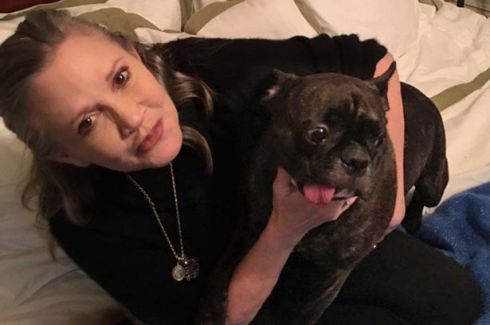
I’m not alone in that. For most Gen X women, there is a direct line between Carrie Fisher and their feminism. Fisher took up public space and made no apologies for her complexity, intelligence or talent.
My entire personality is a childish attempt to emulate her strength: her smartarsery, how she used shock to disarm and delight, feeling lost in the world but laughing at it in defiance and knowing that vulnerability is nothing to feel vulnerable about. Everything about her was hard won and refined to absolute perfection.
I would try to emulate her wit, daydreaming different ways to answer back the way she did. They were complex little daydreams, of a girl sneering at men and their puffed up chests, of fighting back with wit and force no matter what the hell she was wearing so men would get the hell out of her way. Those daydreams change you; practice enough and your daydreams become reality.
Carrie Fisher was our direct line to feminism because she was open and strong. She created her own careers, owned her talent and looked at the world with a compassionate, weary eye and said “fuck it”. Sometimes you fight for others, sometimes you lead others by fighting for yourself. Fisher did both.
How fucking lucky are we to have grown up with that?
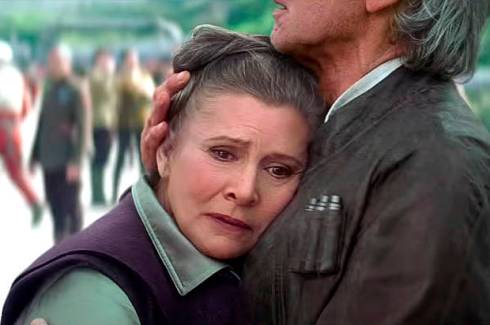
The Kat Muscat Fellowship
20 Nov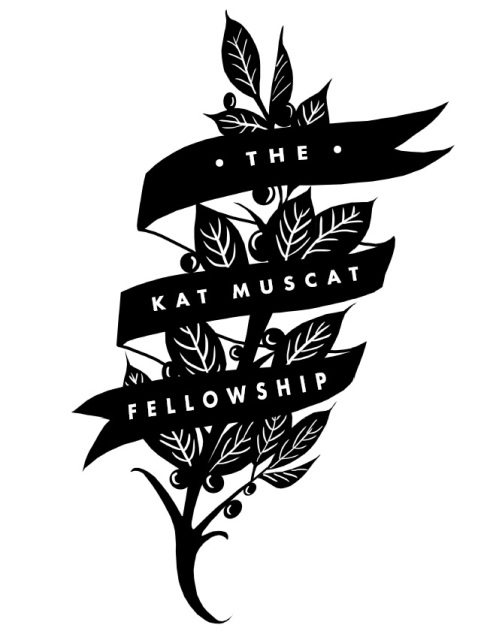
We need to talk about the white woman vote
17 NovWith Trump’s election, there seems to be more fingers pointed in blame than actual votes. Many point the finger at white women, with only 43% voting for Hillary Clinton, a candidate mocked as so white and privileged she could only get votes from other privileged white women. Meanwhile, Clinton secured an overwhelming 94% of votes from black women.
Exit poll data shows consistent voting difference in three intersecting areas: gender, race and income/education. Mix in the racialised difference in votes from white-dominant American heartland to racially diverse cities, and these three elements form Trump’s trinity to power.
The wide disparity in votes from white and black women voters is interpreted as yet another sign of white women ruining for everyone. White women’s racism made them embrace Trump and leave women of colour to the xenophobic alt-right domestic terrorist wolves.
But can we blame white women for the election?
It’s a tempting proposition – blaming women is a popular past time with fans all around the world.
White women are particularly annoying; we drown out intersectional discussion and believe feminism could be successful if we just placed a few more women on boards, leaned in and found more opportunities for empowerment instead of structural change. Plus, it’s easier to yell at a white woman than it is at patriarchy, which would be telling if anyone indulged in self-reflection.
Undoubtedly, white women benefit from a culture of racism that ensures they’re stopped less by police, are less likely to be imprisoned, will earn more than black women and other women of colour, access housing and services with greater ease and appropriate black culture. In our quest to ignore and erase race from white discussion, white women are consistently intentionally and unintentionally racist.
So can we blame white women for the election too? Not entirely.
The white woman vote didn’t just recently convert to Republicans in a fit of racist pique: they’ve always preferred Republicans, even if they’re Donald Trump. Over the past four elections, voting data consistently shows white women vote for the Republican candidate.
The Democrats have a problem with every election – they require extraordinary vote surges to win. Over the last four elections, Republicans can sit on 58-60 million votes and win. To beat this holding pattern, Democrats have to truly leap over the Republican standard to win popular and Electoral College votes (Obama managed 65-69 million, Clinton was neck and neck with Trump at 59 million).
Mix the Republican holding pattern with white women consistently voting for them and consecutive drops in voter turnout, and suddenly the role of white women changes. The question isn’t why did more white women vote for Trump – it’s why didn’t they change their vote to Clinton?
For all their talk of empowerment, women have tacitly absorbed the message they are not as competent as men. Known as internalised sexism, women often cling to sexist reinforcements – they are unworthy of senior appointments and reject women in political or media roles unless they are presented in a non-threatening way (friendly and hyper-feminised, no angry women here, please). One study found that women show signs of internal sexism 11.29 times in 10 minutes of conversation [PDF].
It’s almost touchingly naive to think Clinton ever had a shot at the presidency when Australia’s fractious political history. Former Prime Minister Julia Gillard faced a similarly split vote, gaining power after careful negotiation with minor parties. Her administration gained buckets of vitriol – a feat for Australia – and women denounced her dexterity to be both a “reverse sexist” that “let women down” – and those women made their anger known in disapproval ratings .
But Americans shouldn’t be surprised women vote against themselves. A Washington Post survey into American feminism found 58% of women would not vote for a politician based on their support of women’s rights. The same survey asked “which of the following do you think is a bigger factor keeping women from achieving full equality with men?”, only to discover that while 44% said sexist discrimination was to blame, another 44% maintained it was because of “the choices women make themselves”. A sizable 39% of women don’t consider themselves feminist at all.
It is highly probable that white women betrayed women of color with their vote – but that vote was always a betrayal – of color, of economics and of their gender and independence.
The big question is whether white women will mobilise themselves to become a true political force, one that votes for intersectional equality. Hopefully that change occurs before people wonder why all women are expected to act as janitors for male misbehavior.
[This was a commissioned piece for a news publication last week that closed commissioned content an hour before it was supposed to publish. I hate wasted words.]
Stop pathologising selfies
19 Sep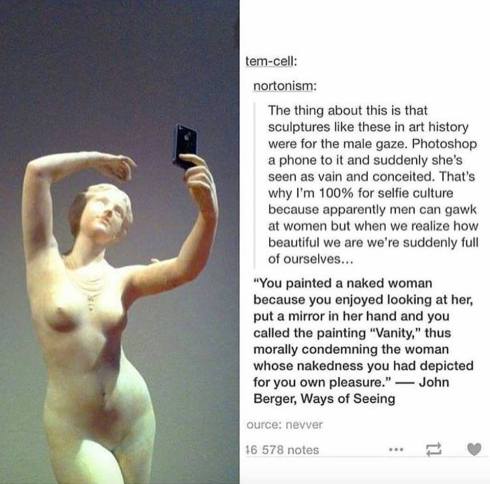
This is a really important point.
The aggressive anti-selfie schtick is really seen on image sharing sites like Imgur where guys will post sexualised photos of women all day long but the minute a woman posts one that isn’t related to a story and she’s an “attention whore”. Both sets have posted the photo(s) for the same reason – sexual gratification – but the minute they suspect a woman may get some pleasure or benefit, all hell breaks loose.
Part of this is because the posters are most likely still focusing on women through the male gaze – inanimate objects who only come to life to service men in some way or another. But there is power in that. Men get to choose when and where and in what capacity women come to life. Men demand women stick to that for male pleasure and benefit only.
The old “tits or get the fuck out” adage is a corrective – not that the men only view women for their sexual pleasure, but to remind them that men decide how women are presented. It’s a barked demand of power – we decide when you will come to life and any intellectual or sexual evidence you’re an independent actual person. The demand of “tits or get the fuck out” tells them to shut up and submit.
Any deviation from this – women posting photos of themselves for themselves – is pathologised as a new mania, a neurosis showing decaying morals.
This is often seen in people criticising women’s selfies. Over on Twitter, one account finds a man saying “women who post topless selfies are nothing but sluts” (etc) and includes a topless or sexualised selfie of the dismissive author. It’s simple for how easily it highlights the hypocrisy and emptiness of the moral pathologising.
The true concern is in technology becoming not only an equaliser but exposing what has lain in plain sight: women exist.
Not only do women exist but they take photos. Perhaps for themselves, for pride or happiness or a need for attention (a good portion of why we express ourselves on social media). Astoundingly, women feel and desire pleasure. To deny this from our politics and lives is to, again, deny women.
And when women remind you they exist and dare to do so with few apologies, it disrupts the power men have often assumed and pressed.
And when women present themselves for sexualisation without men involved, that independence can be uncomfortable for men. Because when an actual woman presents herself, she’s reminding them that she not only exercising choice in publishing a photo of herself, she will probably exercise the same choice in what man she will want (if she does at all).
Sometimes I think the greatest threat with women’s selfies isn’t that they remind men that women exist; it reminds them the women might not want them.
Debating online, some ideas and dance moves.
29 Aug* Realise that debating ideas isn’t the same as debating your personal worthiness. Not everyone has to agree with you, or like you.
Feminists: stop talking over mothers
28 AugI’ve spent five years discussing feminism and parenting. I’ve had my work not read or considered less important because people didn’t think it was relevant to them or because it seems ‘soft’ in comparison to so many other issues – despite reading feminist literature on almost any other topic. I was told by other writers to never write about parenting because I would not be taken seriously.
When editors discovered they could make a buck (and possibly even believe in) feminism, the churn began and eventually wanted to cover feminism and parenting. Places like EB had to fight to maintain the original stream of feminist parenting articles they had been publishing for a long time.
EB were fucking brave to publish anything on feminism given their community’s often overwhelming rejection of feminism. These are people juggling work and home, or just enjoying being at home, and wondering why the hell people are pointing at their lives as an example of wasted potential. Feminists have not been nice to mothers and I have long maintained this has been a combination of elitism, classism and ageism. (Here’s a goddamn piece of mine Fairfax republished back in 2012)
So, to hear that Anne Summers is still denigrating women doing work at home – looking after children, finding pride in the ability to cook – is a really thorny one. Yes, there is a valid argument that women have hobbies (cooking), men have professions (chef). Yes, it may even be a rationalisation for some in their suburban oppression.
But here’s the thing: you can’t claim to want to help women when you denigrate their way of life and activities, when you judge them for having children. You can immediately mock the choices of women if they enjoy something as simple as cooking (seriously? You have no idea how you can fuck the system as when you’re poor and manage to feed your kid on $30 weekly budget).
There are HUGE issues when it comes to families and how women can parent with autonomy and safety, free from professional, personal and economic penalty. To reduce their lives to line about baking trivialises this, something Summers would know given her tireless work with DV. It’s just an aside, sure, but how many other asides would feminists let slide from anyone else, especially in today’s call out culture.
You cannot ignore mothers. You cannot think the sum total of motherhood is a bump and kids under the age of 5, who say cute things. Want to know a gigantic group of women? Mothers. Want to know who is at the coalface of so many sexist threats? Mothers.
But don’t think you can start speaking for mothers either. The amount of times I’ve had people tell me they understand mothering because they have a nephew or neighbours or were once a child themselves, the amount of times I realise you’re just talking over another woman without discovering what her life is like, her identity or her experience. We are not a new topic for thinkpieces, we are not an identity you can ignore until you become one yourself (oh Valenti) and, we are not a group you can ignore the identity politics maxim to listen to/read up/stop speaking over.

You must be logged in to post a comment.